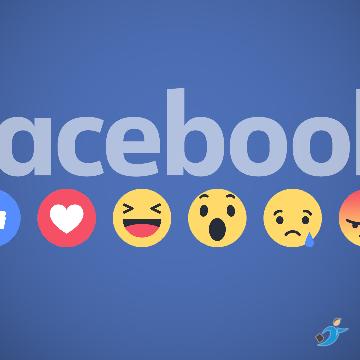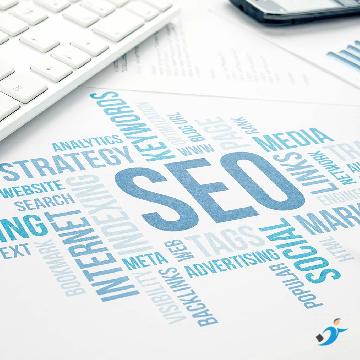The importance of social networks in promoting our business
Today all business owners already understand that in order to brand ourselves we need to make social media advertising an essential part of our digital marketing strategy. Social media has become the most influential and important virtual space where platforms are not only used for social networks but are also a great way to digitally advertise our business and products.
However, like all other digital marketing solutions, this brings its own challenge. Social media networks are constantly growing and evolving, so it can be difficult to keep up with the trends and changes involved. One of the first decisions we need to consider is how to effectively optimize our business page in the organic field and in which cases organic promotion on Facebook becomes less effective, since the conclusion is that in order to promote our business and get conversions we need to advertise ourselves for a fee.
The power of social platforms is commendable, with a huge number of online users, who are almost 59% of the world population, we must not, marketers miss our chance to market on these networks.
Facebook for example, is the largest social platform in the world, with seven out of ten adults using the popular social platform, we are given the opportunity to advertise to a huge pool of potential customers.
But when it comes to organic Facebook marketing versus paid, this is where the confusion and clutter begins in our thinking ... Should we stick to organic advertising? And if so, does organic advertising still work in the case of Facebook post promotion as in the initial stages of the social platform penetrating our lives? Or you should branch out and invest in paid Facebook advertising alongside effective organic optimization management.
Get the answers to all your Facebook advertising questions This article, Organic Facebook Advertising or Paid Advertising: What's the Difference?
"Organic" promotion on Facebook
The largest social platform in the world, Facebook, changes large and significant parts of its algorithm every certain period, which leads to at least organic exposure, and some even claim that Facebook reduces the percentage of exposure of business pages in particular, in order to get us business owners to promote ourselves for a fee.
Facebook uses more than 100,000 different factors that consider what "pops up" in each user's Newsfeed.
A high number of fans to our business page does not necessarily guarantee exposure, a post published on our business page and we will not promote it for a fee, will only reach 5% -8% of our fans, which means that if we do not promote sponsorship, we will not get conversions.
Our fans need to be active and visit our business page more in order to be more exposed to the content posted on the page, although on the other hand, more than 94% of the fans who liked our page do not return to visit the page at all.
Nor should we forget the financial side. Facebook is the most profitable and traded business on the stock exchange. There are more than 18 million business pages that compete for the attention of the users. Reducing the organic range motivates us businesses to invest more in sponsored posts and content. Interestingly, the decline in Facebook's reach was piled up against the rise in Facebook's share price in 2014.
So how do we still make lemonade from the lemons that Facebook offers us?
● Embed your posts on Facebook - Facebook may reduce the organic reach of everyone on their platform, but if we have a blog then we have an audience that they can not touch. This is especially true if we are raking in a lot of traffic with our content marketing, improve your reach by combining the content marketing of your blog with the content on Facebook. By embedding our blog articles on the Facebook page or vice versa (by embedding the posts of the Facebook page on the blog) we can provide much more visibility to the content we really want to promote. This is a great way to attract new users as well as improve our reach and engagement and that of our fans.
● Our fans are "crazy" about a particular type of content - transparency. People love transparency. Transparency is a powerful engagement tool because it shows our audience what goes on behind the scenes. Being transparent is easy and real and there is a way we can do it in a good and honest way, post something personal and interesting that shows the human factor behind your brand. The best marketers today know that their followers want transparency. Jean-Claude Van Damme for example does live shows of his personal life regularly, in one of his live shows he filmed himself and his mother drinking wine and dancing to the sounds of music in the Caribbean alongside his 85-year-old mother. , And asked for help from a friend who was sitting at the table with them, when he asked the friend what to press to end the live, the friend instructed him how to do it but our star Van Dam, made an impression that he doubted his answer. This led to another half minute of deliberation - until it became clear that the friend was right. Well, maybe Van Dam is not one of the best marketers that Facebook has known, but 17.5M fans are not wrong. So true, Van Damme is a celebrity, but that does not necessarily mean that you can not have the same kind of level within reach and involvement from taking the same approach to transparency, truthfulness, honesty and advocacy with your fans.
● Discover the best time to publish our content - there is a huge amount of data on the best times of day to post on Facebook. Don’t just keep track of the data and do what the herd does. Our audience is our audience, and just as they are all different from each other, they are also different from industry to industry. In order to find out what is the best time to advertise for our audience we need to advertise in "free" hours and not in "peak hours" when many more users are offline. When there is not much sharing with our audience, our posts are more likely to pop into the feed of our fans and stand out
● Build engagement - by asking your fans questions. One of our goals with Facebook is to build a community of followers that feeds each other, talks to us back, shares and continues to be involved. A great strategy to achieve this is to ask them fascinating questions, the more we get involved in discussions and respond to content / posts and create interesting discussions the more we increase the chances of our business page being exposed. Do not throw links, do not promote anything, and do not even try to add value to it. Just ask a question. Every customer wants to be heard. Give them. You can ask your fans to share their preferences, their plans, the memories they have, goals, achievements and more. When Nestle asked their fans to describe the moment they opened a package of Nestle sweets, they came to a huge reach. Simple, simple post-text. Remember, we need to maintain a super simple and easy-to-digest form of communication. The more comments we receive, the higher the reach of our posts.
● Make sure you respond to comments - We do a huge amount of work in building a fan base, sharing content and growing our brand on social media. So much so that we have an audience that takes time from its busy day to respond to our page. So we will not respond to their comments? This is something I find illogical in my eyes. These are 100% loyal fans who connect with us and they definitely hope for a response. It makes them feel valuable and it validates their interest in us, zero response means we tell them they are not worth our time. Lack of response can create a chain where other users will not see us answering, so why would they bother to respond at all.
● Do not throw these best practices into the wind - never buy Facebook likes. It's a waste of time and money. On the same line do not send spam to your fans with click - bait or bombardment of worthless updates.
● Do not automate - remember that this is a social platform and you must give the perception that there is human contact. Change the nature of the posts you post, change the type of content you share with your fan base and make it clear that you are not just putting out timed links to your blog posts.
Some tips from "God will do" in our relationship with Facebook:
● Do not automate - remember that this is a social platform and you must give the perception that there is human contact. Change the nature of the posts you post to your fans, change the type of content you share with your audience.
● "Do not just promote" - Of course we do not have to heavily promote our products and services. Facebook is largely based on interest, not intention. Follow the 80/20 rule. 80% of our updates need to be social, with only 20% promotional. Even though even then our promotional content should still be more of a point of view instead of selling something.
● Do not throw best practices into the wind - never buy Facebook likes. It's a waste of time and money. On the same line do not send spam to your followers with content of click-bait or bombardment of worthless updates. Our fans remember it for us.
● Make it clear that you are not just posting timed links to your blog posts (in the next article we will discuss the importance of the blog as a means of marketing, branding and community building).
And in conclusion,
Along with all the benefits of the social platform - Facebook for branding, image and building a fan base for our business it is very important that we keep our expectations realistic.
We all want to reach as much as "organic" on Facebook, but when you attribute the term "organic" to the social platform Facebook and compare it to the organic of image sites / blogs, you can pretty easily and without too much knowledge of digital marketing, defined as "organic Facebook marketing" 'It does not have the same importance, weight and efficiency compared to organic marketing as in websites / blogs.





0